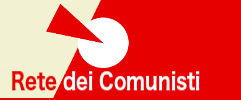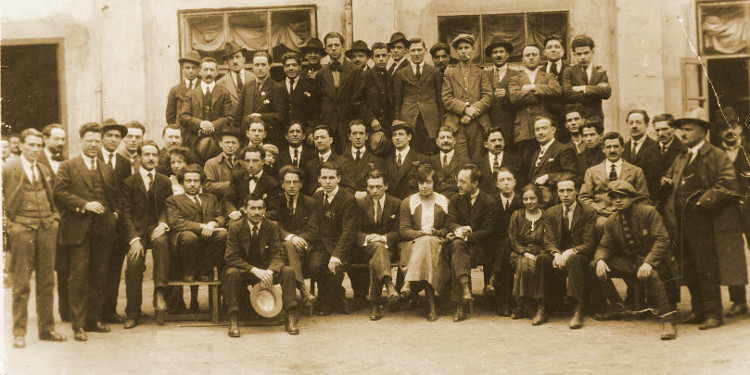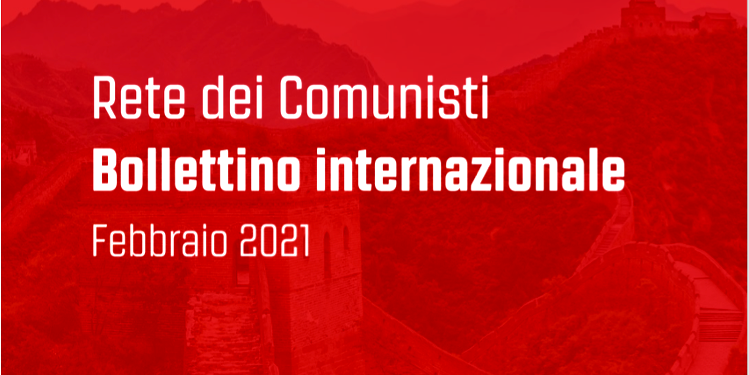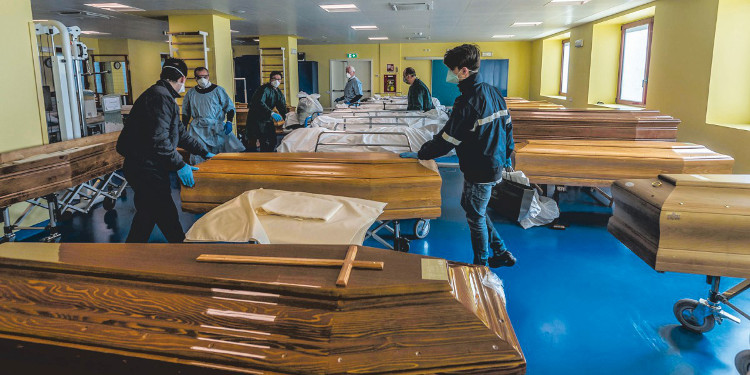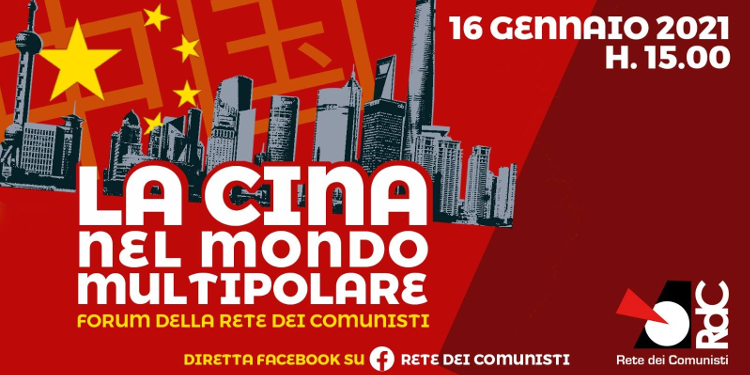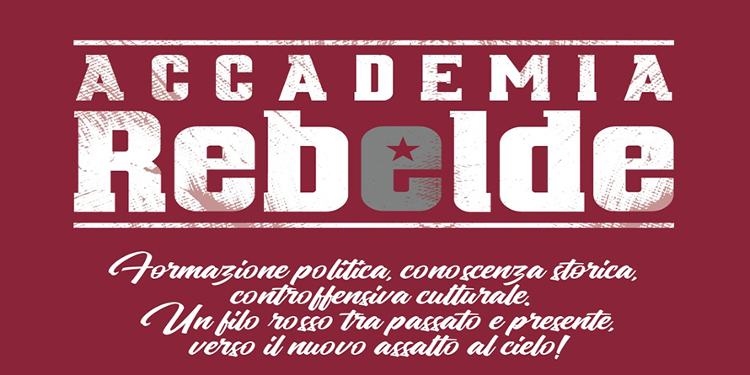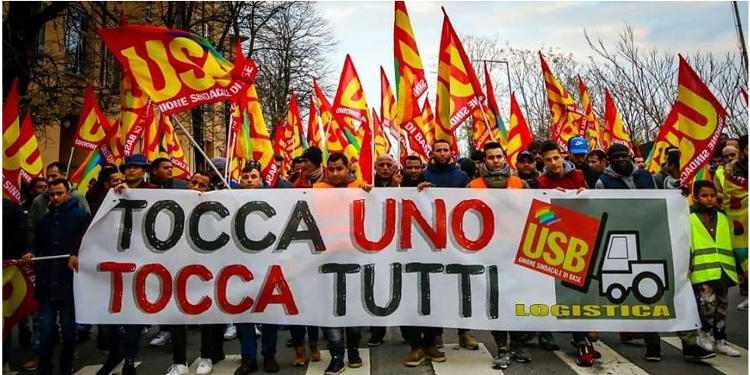| english | español | français | italiano |
Interview with Mauro Casadio, RdC executive
QUESTION: On 21st January 1921, in Livorno, socialist militants in disagreement with the line of the majority reformists in the Socialist Party, left the Goldoni Theatre where the PSI Congress was taking place and went to the San Marco Theatre where, in the course of a tumultuous assembly, they proclaimed the birth of the Communist Party of Italy (Italian section of the Third International).
In these days the press and social networks are buzzing with recollections and memories in which, for the most part, the political thread is represented by those who, 100 years later, define the ‘Livorno split’ as a disaster. It is no coincidence that, around Italy, many exponents of the Democratic Party are trying their hand at this we could define the umpteenth funeral to a political and material history of great importance. How do you interpret this cultural and political climate and – in your opinion – how should we approach the complex issue of the need for a historical balance sheet of the communist experience in our country?
ANSWER: There is nothing new under the sun,
it has been decades, since the 1990s, that there is a continuous work of ideological demolition of the communist experience in a whole series of variants
From the repentants of the PCI and the revolution, some like Veltroni telling us they were never communists, to the most reactionary who find tones such as ‘communists eat babies’. It must be said, however, that this insistence on anti-communism in all its guises reveals a weakness of the ruling classes, which are giving us the advantage of giving communist propaganda an increasingly stale flavour, because the historical phase of the ‘collapse of communism’ is now behind us, and the compulsion to always repeat the same mantra stems from the fear that this ‘spectre’ will materialise again.
First of all, the fear of reproducing contradictions that the dominant ideology had considered outdated because history was over, the fear of seeing countries and forces that refer to communism demonstrate a solidity and resilience that they did not believe in and the fear, finally, of losing the hegemony of the subordinate classes even in imperialist countries where the economic, social and civilisation crises are showing the limits of the present social order. The point is that even the slightest subjective and antagonistic expression of the contradictions that are appearing in the new century risks undermining a balance that is made ever more precarious. In some ways, the recent Trump affair and the incidents in Washington show the pervasiveness of such contradictions that break up political power structures within US capitalism.
So an assessment of the birth of the PCI can only be made on the basis of a historical and dynamic judgement that also concerns the present.
Communism is not a state of mind and communists are not found in nature but are the product of historical necessities that are never static and that manifest themselves within the different phases of a mode of production
The Bolshevik revolution and the birth of the PCI took place in an objectively revolutionary context where a ‘young’ subjectivity was able to play a historical role in overcoming capitalism in some parts of the world and in proletarian organisation in others, in spite of the rhetoric of a D’Alema who claims that the PCI has always been reformist.
The PCI performed that function very well at that moment in history, which found a turning point with the end of the Second World War, the division of the world into opposing camps and an economic recovery in the capitalist West. This changed the condition and line of the party that was expressed in that context and generated the deviations that were possible in that context. It must be said that in different ways this did not only happen to the PCI but affected the entire world communist movement.
QUESTION: Going back to the choice of Livorno ’21 there is a time span – substantially the first five years of the Party’s life, from its foundation to the Lyon Congress (1926) – which encompasses the terms of a bitter but wide-ranging political battle between different options within the new-born Party, which will prefigure the future identity of this formation which will immediately suffer clandestinity, exile and, after almost 20 years of fascist regime, will represent the main fulcrum of the Resistance. Do you think that the questions posed at the time of that internal clash are still theoretical lessons valid for today and, above all, useful for the reconstruction/re-qualification of a modern organised communist subjective?
ANSWER: Obviously not and yes, at the same time, in the sense that an in-depth and specific work of theoretical, historical and political analysis must be done to understand what is still valid. In reality, a non-dialectical reading, that is, of absolute truths, does not work because the underlying historical movement must be distinguished from the forms that this takes in the evolution of societies and in the dynamics of capitalism.
In other words, the high points of Marxist and communist thought, from economic analysis to class analysis and imperialist competition, can all be found in today’s reality; what changes is the way in which these basic characteristics are expressed, which is given by the material changes that society produces in its temporal evolution. The productive forces change and become richer, the social forces change their form and condition in production, the weight of states changes, cultural visions and much more.
Therefore, there is no single answer to the question, but it is a matter of placing oneself within a continuous process of analysis and choices to verify the analyses produced that also require a relationship and an interweaving with the materiality of the organised subjectivities that are placed in the perspective of overcoming the current mode of production.
QUESTION: To interpret the history of the Communist Party (from 1921, to Togliatti’s ‘new party’, to that of Longo/Berlinguer/Natta until its dissolution, in 1991, with Achille Occhetto’s secretariat) as a unicum is a mistake from every point of view. It is undeniable, however, that from the end of the Second World War onwards a political course began that – slowly but ceaselessly – revised the theoretical body, the acts and actions of the party up to the choice of assuming functions of governance at all costs consistently with the full identification with capitalist compatibilities.
In a theoretical work of the Rete dei Comunisti “Class Consciousness and Organisation” in the paragraph “Party and Organisation” a “Schema Hypothesis” is proposed that refuses to take sides (many decades later) with this or that position of the communist movement but advances a plan of analysis based on the historical phases of the MPC, the structural transformations of the class and the relationship between class composition and consciousness. An approach – therefore – heretical and unprecedented that tries to place the function of communists today on a more advanced level and, possibly, more appropriate to the challenges of our contemporary times. At what point is the reflection of the Rete dei Comunisti on this issue?
ANSWER: I do not know if it is ‘heretical’ but the theoretical/political elaboration of the Rete dei Comunisti is certainly in discontinuity with the political culture of the communists in our country whether they come from the PCI or from the other formations, also revolutionary, that have animated the militant scene. To understand what to do today we must have clear not only the vision of the specific moment we are going through but also how this is the product of previous phases and also the potential that this implicitly contains.
We have written several texts on this aspect, placing the current condition within a historical dynamic that contemplates the development of the productive forces, the different phases of crisis, the continuous transformations of the class composition and the evolution of international contradictions in relation to the valorisation of capital, and many other aspects that seem to have no connection with direct political action but which instead are the deep causes that cannot be separated from the action of the communist forces.
This aspect has been completely eliminated from communist thought since the 1980s and has been replaced by political and electoralism, which in this new general condition has immediately fallen on the heads of those who practised them, bringing them, and unfortunately also bringing with them a glorious history, into the current insignificance with which we are familiar.
QUESTION: A non-formal remembrance of Livorno ’21 and far from any form of tired and ineffective reductionism is the cut that we are trying to give to the varied discussions on this Centenary.
We have repeatedly pointed out that if communists really want to play a role that is useful to their reasons – historical and immediate – they must try to perform an avant-garde function in every field of the structure and superstructure
In these years, the path of theoretical and programmatic definition and organised construction of the Rete dei Comunisti – based on its own strengths and aware of its limits – has stimulated and promised discussions and in-depth analysis on the gap between the reasons and the strength of the communists, on the new strategic phase of capital, on the current conjuncture of inter/imperialist competition, on the novelty represented by the continent/China, on the characteristics of Italian capitalism and the North/South dichotomy and on various other issues related to the analysis and perspective of the historical course we are going through. All this while continuing to make our militant contribution to the political, social and trade union struggles to which we are constantly committed. In short – as you know – the Rete dei Comunisti while not proclaiming itself as yet another “reconstituted communist party” tries to contribute with a serious and experienced contribution to the communist battle in our country and in Europe. What do you want to add to this premise – of method and substance – in relation to this anniversary that runs the serious risk of being dulled in a converging scissor between toxic narratives and nostalgic amarcords?
ANSWER: The Rete dei Comunisti has always defined itself as a communist organisation, and not as a party, because it is aware of its subjective limits as a communist force and its objective limits as a force that acts within an imperialist pole that is one of the major competitors in the world. Rarely have we committed ourselves to making the historical anniversaries a founding point of our identity, even if we fully recognise ourselves in them, and we have preferred to project the analysis forward in the new conditions that were gradually emerging in Italy, Europe and the whole world.
The hundred years of the PCI, in its evolutions, cannot be valued on 21 January and then be put into analytical oblivion. In this sense, I believe that the Rete dei Comunisti must use the whole year 2021 to build a public event of theoretical and political nature in which we take the opportunity of the centenary to make a thorough and organised reflection on what was the communist movement of the twentieth century starting from the fundamental historical experience of the PCI in all its contradictions.
